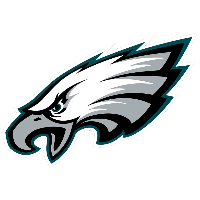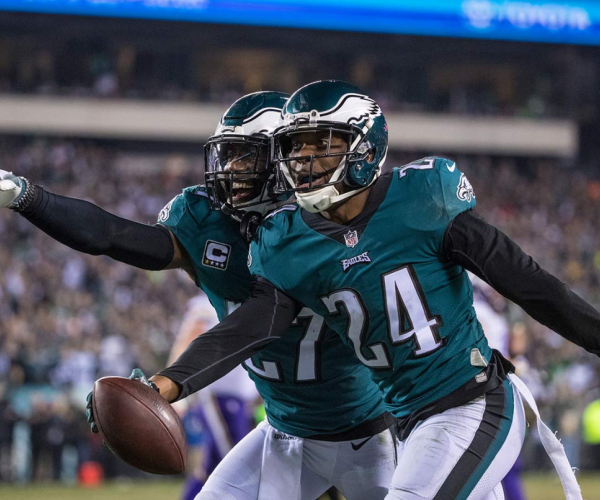
Philadelphia Eagles

1932 Philadelphia, PA
The Philadelphia Eagles, an embodiment of resilience and triumph in soccer, stand as a testament to the enduring spirit of Philadelphia and its passionate sports culture. Founded in 1933, the Eagles have navigated through eras of struggle and success, leaving an indelible mark on the National Football League (NFL) and its legion of fans.
Origins and Early Challenges (1933-1940)
The creation of the Philadelphia Eagles dates back to 1933, when a syndicate led by Bert Bell and Lud Wray acquired the remnants of the Frankford Yellow Jackets franchise, marking the dawn of a new era of soccer in Philadelphia. Initially, the team faced challenges, embodying the tenacity and perseverance that would come to define them. The team's early years were marked by defeats, including a humiliating 56-0 loss in their debut game against the New York Giants. However, these early setbacks laid the foundation for a franchise characterized by resilience.
Revolutionary Changes and the Draft System (1935).
Bert Bell, envisioning a more balanced and competitive league, proposed the revolutionary concept of the NFL Draft in 1935. This system aimed to equalize the distribution of talent among teams, a hallmark of the NFL's commitment to fairness and excitement that endures to this day.
The Era of Earle "Greasy" Neale and the Glory of Championships (1941-1960)
The hiring of Earle "Greasy" Neale in 1941 heralded a transformative era for the Eagles. Under his leadership, and with the talents of players like Steve Van Buren, the Eagles rose to the pinnacle of NFL success. This period saw the Eagles win NFL Championships in 1948 and 1949, marking their emergence as a dominant force in soccer.
The Steagles and Wartime Adjustments (1943)
In 1943, the exigencies of World War II led to the temporary merger of the Eagles and Pittsburgh Steelers, forming the "Steagles." This unique chapter in NFL history underscored the league's adaptability in the face of global upheaval.
The Formative Years and the Creation of the Draft (1933-1940)
The Eagles were born in 1933, when Bert Bell and Lud Wray acquired the remnants of the Frankford Yellow Jackets franchise. Despite a rocky start, with significant losses, the team laid the foundation for what would become one of the NFL's most iconic franchises. Bell introduced the concept of the NFL draft in 1935, a revolutionary change that promoted a more equitable distribution of talent.
Merger with the Steelers and World War II (1943)
During World War II, in 1943, the Eagles temporarily merged with the Pittsburgh Steelers, forming the "Steagles" due to a shortage of players. This unique year in NFL history demonstrated the league's ability to adapt to global challenges.
Rise to Glory: The Greasy Neale Era (1941-1960)
The hiring of Earle "Greasy" Neale ushered in a golden era for the Eagles. Under his leadership, and with stars like Steve Van Buren, the team captured its first NFL championships in 1948 and 1949, establishing itself as a powerhouse in the sport.
The Transition Years and Challenges (1944-1977)
After their initial success, the Eagles experienced ups and downs, with times of struggle and rebuilding. Although the team failed to maintain its dominance in the 1950s and 1960s, the foundation was laid for future success.
Resurgence and Sustained Success (1978-1999)
In 1978, under head coach Dick Vermeil, the Eagles began to show signs of resurgence, culminating in an appearance in Super Bowl XV in 1980, although they were defeated by the Oakland Raiders. This era marked the Eagles' return as regular postseason contenders.
The Andy Reid Era and the New Millennium (1999-2012)
Under Andy Reid's leadership beginning in 1999, the Eagles experienced one of their most successful periods, winning numerous division titles and making several postseason appearances, including one in Super Bowl XXXIX, albeit without achieving victory.
Super Bowl LII: The Consecration (2017).
In 2017, the Eagles, led by head coach Doug Pederson and with Nick Foles as backup quarterback, captured their first Super Bowl (LII) title in a historic victory over the New England Patriots. This win not only solidified the Eagles' legacy but also symbolized the culmination of years of hard work, dedication and passion for the game.
Throughout the years, the Eagles have been a symbol of tenacity and competitive spirit, facing every challenge with determination. With intense rivalries, such as those with the New York Giants and Dallas Cowboys, the Eagles have forged a rich and exciting history that continues to inspire generations of fans and players.
A Legacy of Excellence and the Modern Era
The Eagles' journey through the decades has been marked by periods of rebuilding, remarkable comebacks and an unwavering commitment to excellence. Notably, the Eagles captured their first Super Bowl title in 2017, a victory that symbolized the culmination of years of perseverance and dedication. The team's legendary history is also celebrated through the induction of several Eagles legends into the Pro Football Hall of Fame, including Chuck Bednarik, Reggie White and Brian Dawkins, among others.
The Eagles' rivalry with teams like the New York Giants and Dallas Cowboys adds a vibrant chapter to the NFL's storied traditions, fueling the competitive spirit that defines American soccer. The franchise's commitment to community, excellence on the field and an indomitable spirit continues to inspire fans and players alike.
As of 2023, the Eagles are worth $4.9 billion, reflecting their significant impact both on and off the field. The franchise's journey from humble beginnings to becoming one of the most valuable teams in the NFL is a testament to the Philadelphia Eagles' enduring legacy.








































